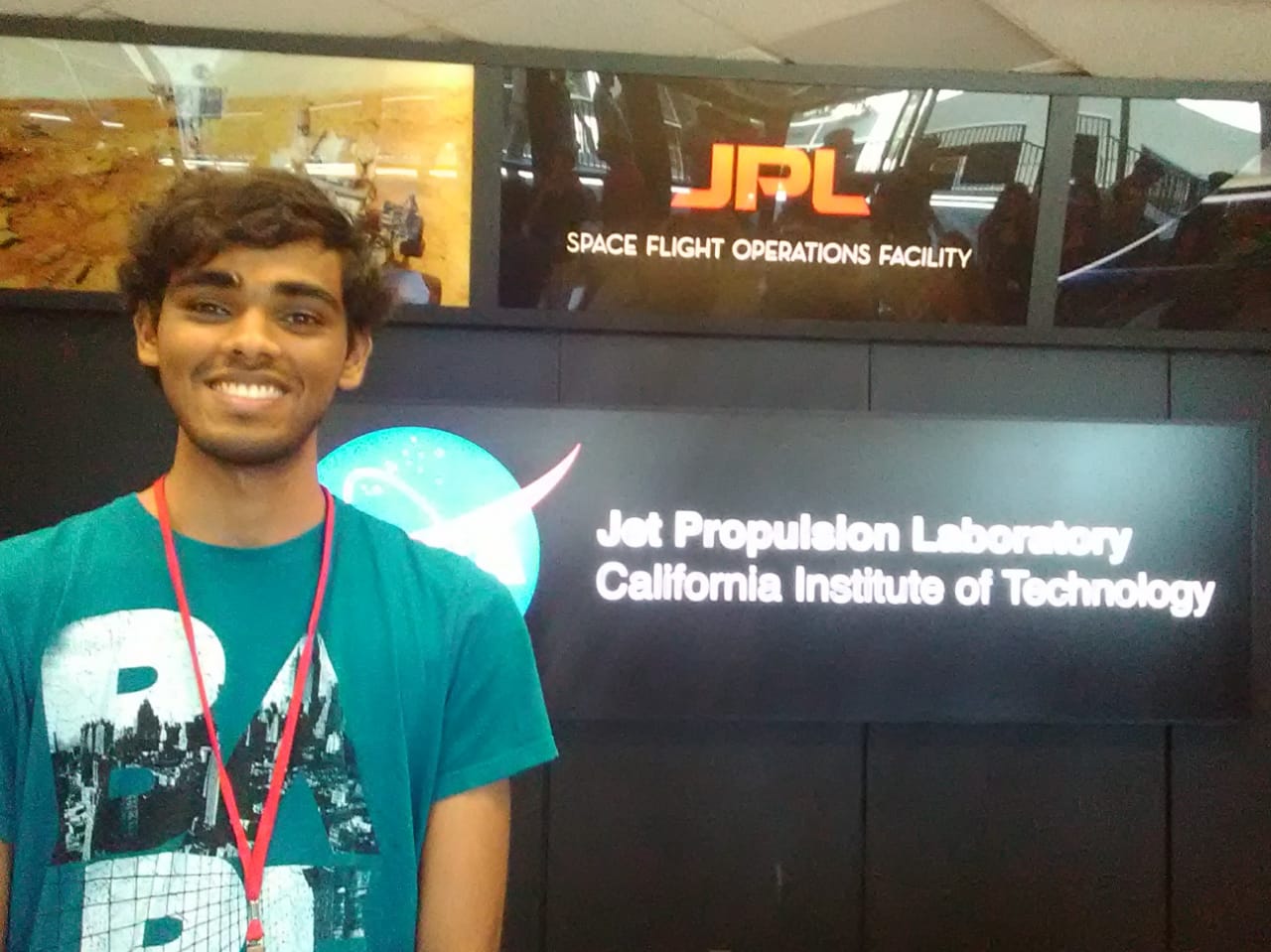Edited by: Sankalpa Venkatraghavan
Part 2: We view the scene through the lens of Nandita Damaraju, an alumnus of IIT Madras.
Nandita Damaraju graduated in 2014 with a B. Tech degree in Biotechnology from IIT Madras. She obtained her Master’s in Computational Science and Engineering from Georgia Tech and is currently a Machine Learning Scientist in the biotechnology industry. Nandita shared her experiences and challenges she faced as a woman in STEM with T5E.
T5E: What were your interests in college and did you face any challenges in pursuing these? Did your gender play a role?
I had a wide variety of interests in Insti. I’d dabble in everything from music, art, sports and extracurriculars. I was, however, more formally a part of the Insti-women’s-swimming team and the International Genetically Engineered Machine club in Insti. The Insti swimming team had about 25 guys and 4 girls when I was a part of it. iGEM had 6 guys and 2 girls.
Insti was indeed largely male-dominated. As a freshie, I was extremely enthusiastic about sports and sought out every little opportunity to pursue any sport. However, there was very little participation from the girls understandably because we were one hostel against 17 others and we almost always couldn’t compete with the guys, both in terms of number and strength. This made it hard to garner enthusiasm and be a part of the larger very vibrant and competitive sports culture in Insti. Even those of us who did participate in events such as Inter IIT etc, did not receive proper training or resources as our male counterparts. As a part of the Insti swim team, one of the biggest hurdles us girls faced was not having a dedicated coach. We never had anyone to tell us what our workout should be, what we were doing wrong and how we could improve our technique. The guys, however, had dedicated coaches who would go over their form and techniques. Their coach would sometimes come and advise us on the side, but that was about all the direction we received. We four would rely on each other and sometimes on the guys on the team for directions to improve, since we had no other options available.
T5E: Did you see any differences/improvements from your first year to final year in Insti?
Absolutely! I remember being supremely enthusiastic about inter hostel sports activities in my freshie year. However most of the team sports required 10+ girls to participate and we couldn’t even gather that number out of a hostel of 500 girls, so we had to forfeit quite a few times. This was quite demotivating at times. But there were a few of us who were enthusiastic nevertheless so we’d try to carry the spirit forward into our later years. However, come our third and fourth year, I remember having no issues at all gathering a team for footer (football) Schroeter with a bunch of over-enthusiastic freshies (possibly due to the gradual increase in the intake in the number of girls per batch).
Sports in general, saw much better participation from the girls as I approached my final year in Insti. The level of competition when I tried out for the swim team in my second year, the selection criteria was very relaxed and enthusiasm levels were probably the only barrier for entry. In our fourth year, however, getting into the swim team was quite competitive and the girls who did get through to the final team put on a fantastic show at the inter-IIT tournament!
T5E: What were your career plans in Insti and how did it turn out?
In Insti I had developed a very early interest towards Biotechnology, my major, because of the diverse array of problems and because of the plethora of fields that it takes inspiration from like CS, Math, Statistics, Electrical Engineering, Mechanical Engineering, Chemical Engineering and many more. It felt like the perfect discipline to pursue for someone who wanted to dabble in a little bit of everything. As my interests narrowed down, I decided to pursue research at the intersection of Biology and Computational Science. That is pretty much what I continue to work on 6 years later after graduating from Insti, albeit in a less academic and a more corporate setting than I had envisioned back in Insti. While gender has played a role in terms of access to opportunities and people in my field as mentioned earlier, I don’t believe that gender influenced my choices in a significant way.
T5E: What was the gender inclusivity scenario like in your journey from Insti to Georgia Tech to the industry?
The gender ratio at Georgia Tech came as a bit of a surprise to me. To see almost the same number of girls and guys in every class be it computer engineering, robotics, statistics or core biology was honestly very refreshing. This wasn’t the case in Insti as some branches had very skewed gender ratios (The Mech batch in our year had 2/160 girls, Biotech had 15/60 girls). Both are still nowhere close to 50/50 but one being clearly abysmal in comparison with the other.
The gender representation in the corporate world was not very representative of the ratio at Georgia Tech. My observations are limited to the fields of Data Science applied to Bioinformatics and Computational Biology, but the ratio has been improving a lot, even over the span of the last 5 years at least. I remember during my internship at a Genomic and data science research lab in NYC in 2015, I was among the two girls in a lab of 12 people. In addition to navigating the cultural differences that come with moving and working in a new country, this huge disparity in gender meant that I couldn’t easily navigate these issues by approaching other women in the field. That being said in my current team, that uses Machine Learning for diagnosing infections, we have 3 women and 4 men and that ratio is the same within the rest of the company as well that encompasses many different disciplines.
T5E: What advice would you give to build a more inclusive student community?
To all the girls trying to pursue careers with a very few number of women, I would say, keep going and don’t let the lack of women in your field deter you. Seek out other women in your field or relate fields to form peer-mentoring groups to discuss any issues or hurdles that you face. Form support groups and female-clubs in Insti to help other girls build their skills and to create a space for them to share their issues openly. Don’t hesitate to ask for help from both men and women in your field. You can also receive valuable guidance from your male peers and seniors. My male peers throughout the course of my studies and career have been nothing but helpful and supportive and my closest mentors who are very actively interested in my progress happen to be all-male.
To all the boys in Insti, I would say support your female colleagues, friends and family and actively have open conversations with them about the issues they face. These conversations are a great avenue to interact with females and understand their perspective. Also, very proactively try to include them in activities that continue to remain male-dominated.




